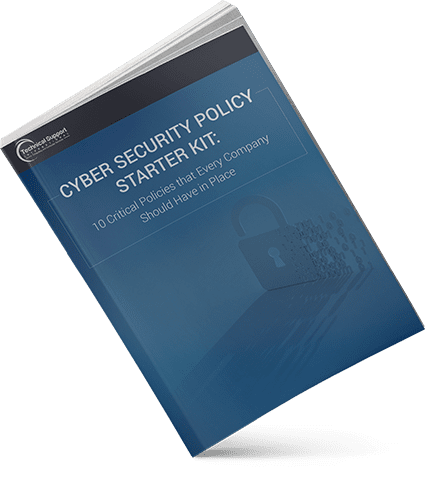Blog

4 Tips For A Strong BYOD Policy
One of the most important aspects of our job here at TSI is ensuring that our clients are able to effectively and efficiently do their jobs. With the winter and holiday seasons nearly here (a time of year that greatly impacts employee in-office attendance), now is a great time to step back and take a look at your company’s Bring Your Own Device (BYOD) policy.
If your organization doesn’t have a BYOD policy, you may want to consider implementing one. BYOD policies are proven to reduce equipment costs for organizations over time and increase productivity. They also allow employers and employees alike to embrace the more flexible schedules that today’s hectic lifestyles sometimes require.
In order to ensure that your company’s data is safe, and that your employees are actually able to get work done on their personal devices, here are four BYOD policy best practices.
- For a BYOD policy to be successful, every part of the organization must be in agreement about what systems and data can and cannot be accessed by personal devices. If employees are using their personal laptop to connect to the systems, they should – ideally – be able to access everything that they can access when sitting at their desk inside the building.
- Security parameters must be in place that will protect the company’s data. This might mean requiring employees to use stronger passwords on their mobile phones. It may also require that employees must report their device lost or stolen to the organization immediately so that it can be remotely wiped, if possible. In order to ensure the success of your BYOD policy, your organization should have a strong Written Information Security Policy (WISP) in place. This will help your organization avoid instances where a data breach may occur, and allow you to respond quickly should the need arise.
- Develop a plan of action that can be executed quickly and remotely in the instance that an employee no longer works with the company. This plan should include the ability to change usernames and passwords immediately, and to restrict access to particular files. You may also want to develop a legal agreement that states explicitly that any company data stored locally on a private device is still property of the company, and that using it in any manner other than explicitly for operations dedicated to your business would be in breach of an agreement. This would be especially useful for companies that allow their sales and account management teams to use personal devices as they might have client or prospect contact information stored on their devices.
- Create clear and concise guidelines for devices that can and cannot be used. While a BYOD policy does afford your employees a great amount of flexibility, not every device is secure enough or even able to be used to meet business needs. Consider researching devices across various categories (mobile phones, laptops, tablets) and coming up with a list of the ones that are acceptable to use.
For more information on implementing a BYOD policy, or updating your organization’s current policy, contact TSI at (508) 543-6979.
Categories
- Backup & Disaster Recovery
- Business Operations
- Case Studies
- Cloud Services
- CMMC
- Cyber Security
- Employee Spotlight
- Finance & Budgeting
- Glossary Term
- Governance & IT Compliance
- Managed Services
- Mobile Device Management
- Network Infrastructure
- NIST/CMMC
- PCI
- Podcast
- Project Management
- TSI
- Uncategorized
- vCIO
Cyber Security Policy Starter Kit:
10 Critical Policies That Every Company Should Have in Place


